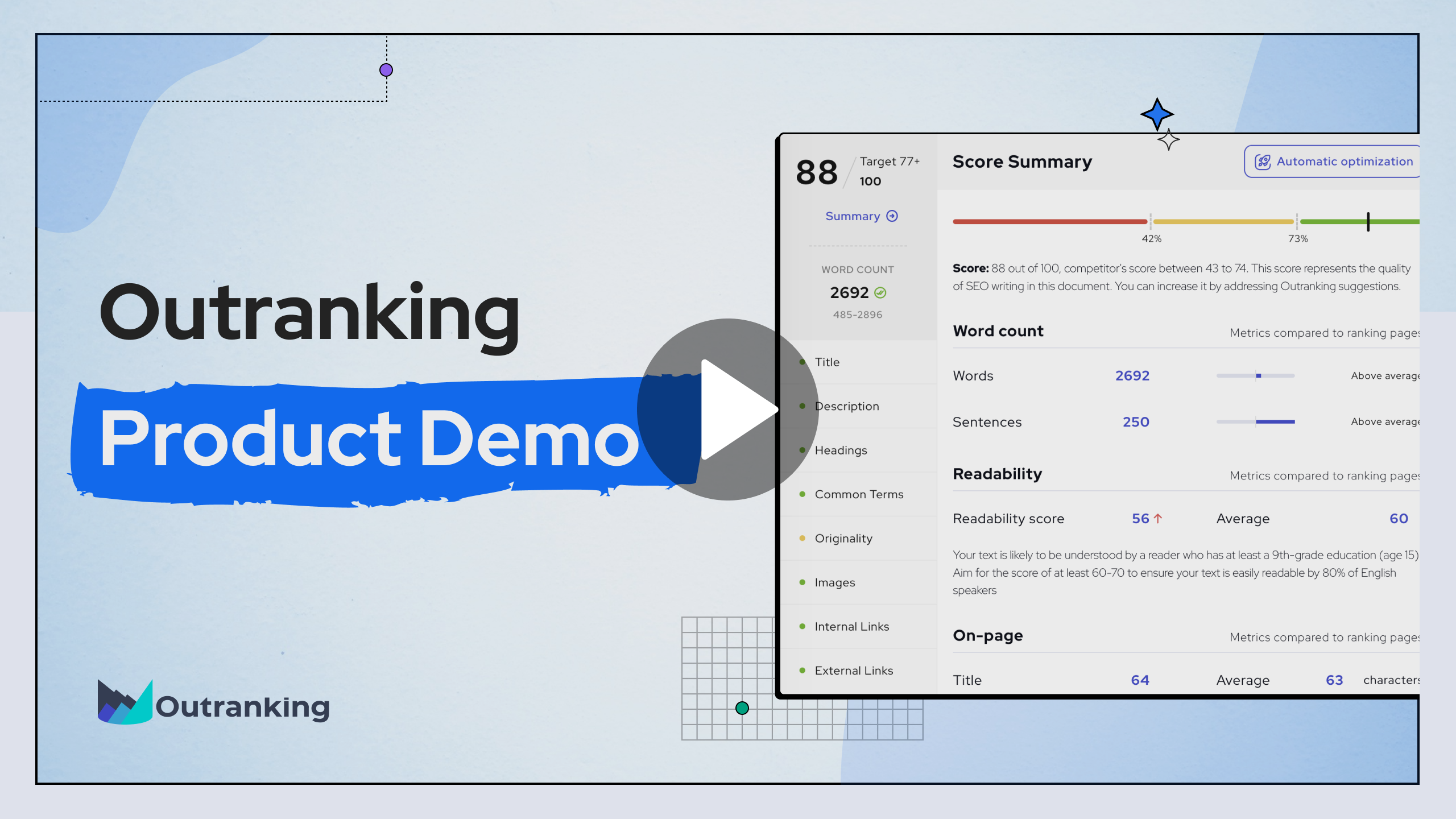- Product
- SEO Content Editor
- SEO Content Strategy
- Content Optimization
- Content Briefs
- AI Assisted Writing
- Keywords Clustering
Preview a demo walkthrough
Outranking the competition with our cutting-edge SEO strategies.

- Pricing
- Resources
- Sign In
- Get Started

Types of Writing Genres
Table of Contents
Every genre of writing has its own set of expectations and mindsets. But the genres are also a tool for creativity, providing a variety of perspectives to tell a story in many ways.
What kind of style do you want your writing to have? Do you want it to be deep, funny, or personal?
Here we will discuss all the genres that you need to know!
Table of Contents
What is a writing genre?
A writing genre is simply a type of narrative that can be read or written. It tells the story in an interesting way and has one main purpose—to share ideas, news, or emotions with other people. There are many different genres, including short stories, personal narratives, sequels to stories, and retellings of stories.
Writing within each genre shares certain features, such as rhymes, stylistic devices, or images. Using words specific for poetry, writing emotional appeals on morality, or having characters explain logic can persuade readers into thinking the writer is right.
The focus of each writing genre is to describe events, a theory, or other ideas in a certain way. This includes stories, which have a central plot and characters. The core of each writing genre is how the elements are conveyed and described.
Why should you consider a job as an author or in publishing?

When writing or publishing for a company, you get to work with different people. They are all experts in their field, and it is easy to learn from them about what they do.
Publishing is also one of the most rewarding careers—after spending hours upon hours working on your book in a production or editorial capacity, you become very invested as you move beyond the tip of the iceberg. Different problems arise during publication that must be solved, and sometimes there are many of them.
When you are publishing a book, it is important to consider what production value to target for a particular title, as well as how many books you need to publish to be successful. You can use Toggl to track costs and scheduling for projects when using this type of writing strategy.
Writing is a full career, and you should consider becoming an author or working in publishing if it’s something that interests you.
Publishers are trying to sell books at higher prices because they want to work with the best writers with the most experience who can create high-quality content on time. This makes sense given how much work goes into creating a book from start to finish.
What are the different types of writing genres?
There are many different types of writing genres. A piece of fiction may have some facts, but it is mainly a work of imagination and creativity. Pieces that fit within a specific genre have similarities in the subject matter, style, and form.
We have separated professional writing genres from literary and academic writing genres. But first, here are the most common writing genres that you should know!
Descriptive writing
Descriptive writing is a form of creative writing. It’s found in fiction, poetry, advertising, journal, and diary writing. Descriptive writing can be used to provide an understanding or interpretation of something that has been experienced or observed. This type of writing often uses sensory details such as sights, sounds, tastes, and smells.
Descriptive writing is a form of literature that allows the reader to experience and understand the story in their own way. It uses sensory information to create a vivid image in the reader’s mind.
Descriptive writing is a type of literature that often includes topics such as nature and animals. It also relates to many other forms like poetry, fiction, nonsense writing, and text-message emoticons.
Fiction also often falls into this category, and we will discuss that later too!
Expository writing
Expository writing is a genre of writing that sets forth facts. It is probably the most common type of writing genre you will come across throughout your day. In expository pieces, topics are introduced and laid out in a logical order, without reference to the author’s personal opinions.
Expository writing is found in textbooks, journalism (except for opinion and editorial articles), business writing, technical writing, essays, and instructions. All of these types of writing are expository because they aim to explain something or keep the reader informed.
Journal and letter writing
Writing styles have changed over time because of technological advancement. There are different types of writing genres that include personal journals, letter-writing, blogging, texting, and email. These less-formal styles focus more on the writer’s individual personality rather than trying to explain something.
Journal writing has been a popular genre since the advent of paper. In today’s society, journaling is done through diaries or journals, blogs, and text messages on phones or computers. First-person prose is often used in journals to share personal feelings with others without being overly explicit about them.
Narrative writing
Narrative writing tells a story of what happens to the characters in a piece. The author can tell a story about their own personal experiences, a historical event, or something completely fictional. There are different ways that this narrative can flow, and the author may choose to focus on one character or convey multiple points of view.
Persuasive writing
Persuasive writing is a genre that aims to influence the reader to assume the author’s point of view. It can be found in advertising, opinion pieces, and editorial pieces.
Persuasive writing can be seen through many sub-genres. A persuasive piece of writing is usually created to persuade someone about something, such as advertising or promotions, letters in the editorial section of a newspaper, or calls for fundraising.
Professional writing genres
Memos
In the past, memos were considered to be typical professional or business correspondence. Guidelines for a standard memo still exist, even if the medium has changed.
Paper memos are on their way to becoming obsolete. They provide a clear summary, and the most important information is at the beginning. A positive tone helps the reader understand what the writer is trying to convey, making it appropriate for the intended audience.
Meeting minutes
In professional writing, meeting minutes should follow a standard format. The meeting minutes include important dates and times, as well as locations and attendees. It is also essential that you record the most important details of what was discussed in a meeting so there are no misunderstandings later on.
There are several steps involved in recording meeting minutes, and external links should be carefully considered before adding them to an article. The minutes should be uniform with names and locations. Furthermore, unnecessary information should be avoided, as this can cause difficulty in understanding.
Business letters
Business letters can be formal or informal. A well-written business letter shows the reader why it is important. Here, a structured approach is important for successful communication.
Social media
Social media is an emerging genre in business communication. The level of discussion in social media posts varies, depending on the audience and the topic. Consider successful posts on social media to help develop a firmer understanding of how this can be used to reach your target audience.
Literary genres

Literary nonfiction
Literary nonfiction is about real people and events. Essays are short compositions about the writer’s outlook or their point of view on a subject. Biographies are stories about one person, and they may focus more on their life or their personality. This genre can be found in literary magazines like The New Yorker, Harper’s Magazine, and The Atlantic.
Mystery
In literature and academia, a mystery refers to fiction that follows a crime or misdoing as it’s committed, investigated, and solved. This often describes a legal case or a criminal investigation.
The most popular detective novels are the Sherlock Holmes stories. Well-known detective novelists include Agatha Christie and Raymond Chandler.
Mystery novels are a genre that typically has puzzles to solve. Historical mysteries, locked-room mysteries, and police procedural whodunits all fall into this category.
Thriller
Thrillers are different from other genres in that they are plot-driven. Dan Brown’s MasterClass is a good place to learn how to write thrillers. Thrillers may lack comedy, but they make up for it with suspense.
Horror
Horror is a genre of literature, film, and TV shows. The key focus of horror novels, films, and television shows is to elicit fear. A story often shocks and provokes with its exploration of the unknown. Gothic novels are a notable example that emerged in the eighteenth century.
Stephen King is considered the father of modern horror literature. However, in recent years, writers like Stephen Graham Jones and John Langan have pushed the boundaries to create new elements for horror stories.
Historical
Historical fiction is a genre where the story takes place in the past. Historical novels are told about historical figures or events for authenticity, and novelists explore history as a book genre.
Romance
Romance is a genre that deals with love stories between two people, and elements of romance can be found in many types of literature. Romance has been around since ancient times, but time travel and paranormal romances have become popular in the last few decades.
Bildungsroman
The Bildungsroman is a literary genre of stories about growing up. The protagonist usually experiences a profound emotional loss and goes on a journey, encountering conflict that ultimately matures them into an adult by the end of the story.
Science fiction
Science fiction is a genre that deals with science and technology in society, creates different realities, and sometimes has an element of the scientific process involved.
Science fiction is a speculative genre that usually includes elements of space, time travel, or other futuristic societies. There are many common themes in sci-fi novels, such as the government’s control over society and individual freedoms.
Magical realism
Magical realism is a type of literature that depicts the real world with an undercurrent of magic and fantasy. The genre often incorporates fantastical elements, which are not viewed as odd or unique, but as normal within the story world.
Magical realism is a genre of literature that was born out of the realist movement and has close ties with Latin American authors. Stories often take place in this world but have some supernatural elements. Literature from around the globe uses magical realism as well.
Fantasy
Fantasy novels are speculative fiction stories that are set in imaginary universes. They are inspired by mythology and folklore, and the genre is enjoyed by both children and adults.
Dystopian
Dystopian novels often examine futuristic, oppressive societies, in contrast to utopian fiction. Dystopian novels often feature some type of social and political unrest.
Dystopian novels can help us examine real fears, like mass surveillance by the government.
Realist literature
Realist literature is a type of literary genre that focuses on the truth. The author tries to depict life as it is, without embellishment or exaggeration.
Realist novels are set in the real world and avoid unrealistic, exotic, or supernatural elements. They may also be broadly defined as “novels that show life realistically without embellishment.”
Speculative fiction
Speculative fiction encompasses many genres, such as science-fiction, fantasy, and horror. There are no limits to what exists beyond the real world. Speculative fiction is a broad category of fiction that includes literature and academic writing.
Speculative fiction is a genre of writing that covers themes in the context of supernatural, futuristic, and other imaginative realms. Such fiction allows writers to experiment with nature in ways not currently possible with science as we know it. It also provides some benefits, like internal consistency within their fantasy world, while providing more opportunities for creative exploration than would be available if they were stuck using real-life situations or scenarios.
Academic writing and other genres
Analytical writing
Analytical writing is scientific and cites data. The author may have a chance to include persuasive writing. A common layout uses the structure of an abstract (summary), introduction, methods, results, and discussion.
Argumentative writing
Argumentative writing is a type of academic essay that requires the writer to break down an idea or subject into its component parts and then offer arguments and evidence for each part. This is often based on reading and understanding fiction or nonfiction texts.
The author’s instinct is typically toward arguing for what they believe, which may be based on an emotional appeal. Argumentative essays typically have three sections: a thesis (main claim), supporting points or evidence, and a conclusion that serves as a summary.
Professional writing
Professional writing is a broad category that includes business letters, emails, studies, reports, and executive summaries. If you’re writing for a client, it is beneficial to follow the style rules of the particular company and genre.
Conclusion
Now you know the most popular writing genres and their most popular forms. Whichever genre or form is closer to your heart, Outranking will help you create your talking points quickly and get started with writing. If you are writing for your website or blog, it will also help you optimize your content with related keywords and headings to help you reach the maximum topic coverage.



